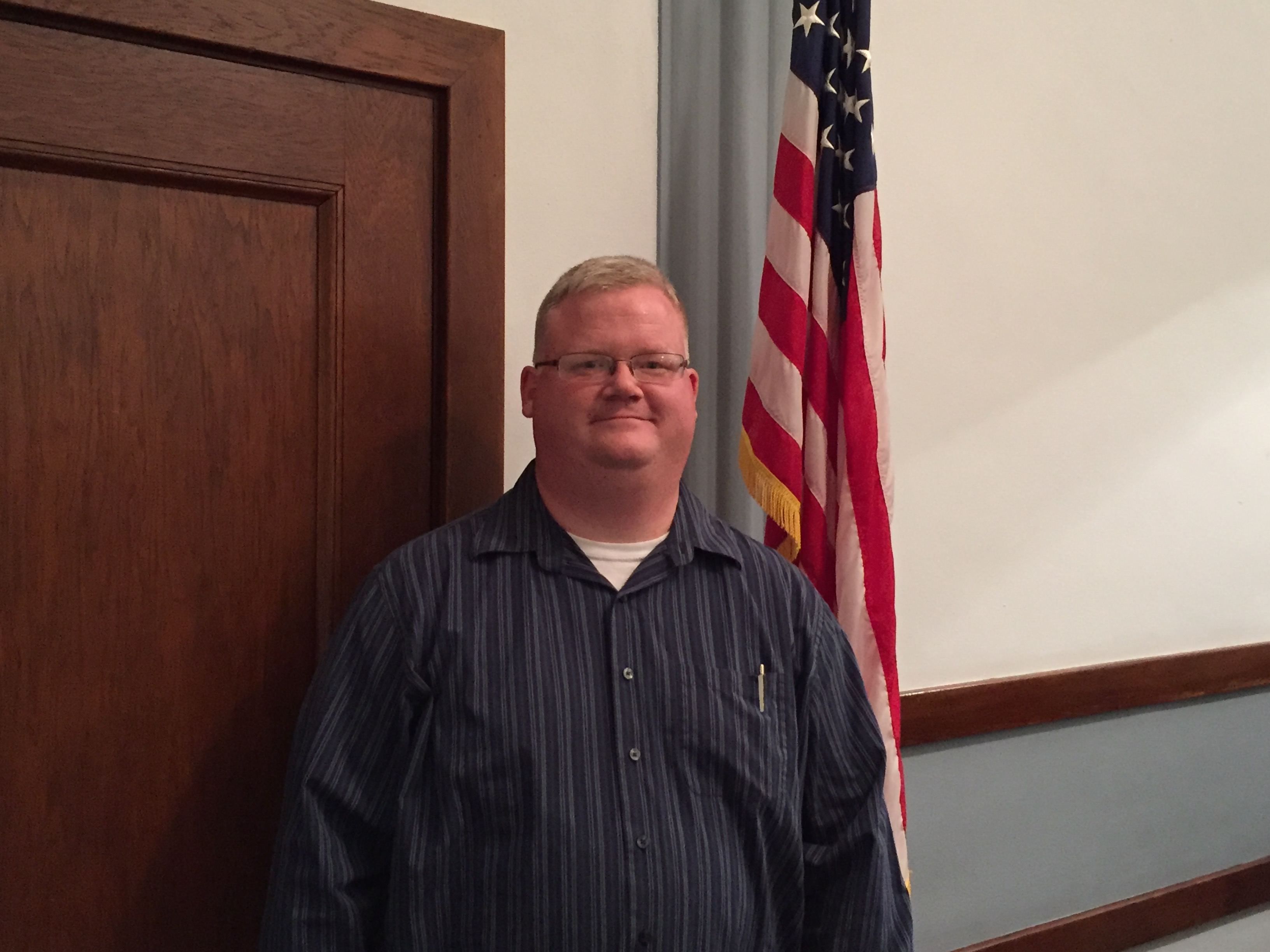By Andrew Walsh
awalsh@wbcowqel.com
On a night dominated by personnel concerns, Bill Comerford was appointed to the vacant Galion 1st Ward council seat. The seat was vacated by the resignation of Sarah Capretta, and filled after an executive session held during the special council meeting to interview the three interested candidates.
“Well, I’m very excited to have the opportunity to serve the City of Galion. I pledge to do all my homework to make educated decisions,” Comerford said. “I’ll make sure I make sound decisions for the city.”
Comerford ran for the city treasurer’s post last November but was defeated by Rod Sparks.
The executive session came after a number of legislative concerns were addressed. As council dismissed those in attendance to have the requisite privacy to conduct its interviews, Howard Morrow rose from his chair and invoked what he believed to be a provision in the United States Constitution that would override the privacy provided by executive session and allow him to stay and observe the interviews.
Law Director Thomas Palmer rebutted this, saying he had been approached by Morrow earlier in the day with this same declaration, and was aware the he would be attending the meeting that evening. Palmer professed that after researching, “I am aware of no cases” in which Morrow’s claim held true. He reinforced City Council’s ability to go into executive session to conduct these interviews.
During legislation, the ordinance pertaining to, and the discussion of, the proposed deputy auditor position produced a rather heated plethora of opinions. Ordinance 2016-20 was up for a second reading to create the position of deputy auditor, and it immediately met with backlash.
Councilman Jim Hedges began criticizing the department for needing so many employees to run its office. He cited Belinda Miller, Cindy McCafferty, Brian Treisch, Eunice Collene, and April Amens as being excessive employment necessary to run the office.
 Auditor Treisch was quick to point out that Miller and McCafferty were not employed by his office. They are employed by the State of Ohio Auditor’s office and were assigned to Galion when the city entered fiscal emergency. He was backed up in this regard by Mayor Tom O’Leary, Council President Carl Watt, and Councilman Gail Baldinger.
Auditor Treisch was quick to point out that Miller and McCafferty were not employed by his office. They are employed by the State of Ohio Auditor’s office and were assigned to Galion when the city entered fiscal emergency. He was backed up in this regard by Mayor Tom O’Leary, Council President Carl Watt, and Councilman Gail Baldinger.
The city pays a retainer fee, starting at $25,000, for the services provided by the State as they help Galion see its way out of fiscal emergency. The work done by Miller and McCafferty is covered in this fee, but they are in no way employed by the city or by Treisch’s office.
Hedges was not the only one with concern over this position, as councilwoman Susan Bean was also vocal in her opposition. Bean expressed her “concern” about the necessity of this position, and about incurring additional cost to the city.
Roberta Wade chimed in as a public participant, and echoed these same fears. “Council has this important job to control the purse strings.” She cited her time as director of this same office back in the 1980’s, and while admitting that this new position would bring staffing levels in line to what they were then, that so much more of the process has been automated these days. There is also the fact that the city does not collect its own income tax anymore.
Treisch and Councilman Tom Fellner defended the position, believing that it was a positive addition to the department. They also liked the idea of it providing some stability to any incoming auditors. With that being an elected position, there is the real, if unlikely, possibility of a new auditor coming in to lead the office every four years. Having someone with experience in this position already in the office could help incoming auditors make a smoother transition.
The counter argument to that point is that this position would be a fiduciary appointment, and serve completely at the discretion of the auditor. He or she would not be protected by Civil Service, and any possible stability that could be provided to incoming auditors could be erased by that very same auditor issuing a dismissal.
Perhaps the final concerns came in the staffing levels that already existed in the department, even correcting for the mistaken inclusion of Miller and McCafferty. There are currently two clerk positions on the books with the proposed addition of this deputy auditor. Treisch stated that he intended to appoint one of the two to Amens and Collene, and leave the other clerk position vacant. This would help offset the costs of the new position.
This caused Billie Bodkins to raise the question, “What happens if one of these clerks doesn’t want to become the deputy auditor?”
At the end of the day, the concerns tipped the scales. It was probably a bad omen when Fellner made a motion to suspend the rules and move to a final reading, and that motion died for a lack of a second. The ordinance itself was ultimately voted down 4-2, with only Fellner and Shirley Clark voting in its favor.
Ordinance 2016-22, which followed immediately after, was also closely related to its predecessor. It sought to create pay scales for both the deputy auditor position, and the position created in 2015 of public information officer. Since the position of deputy auditor had already been defeated, Fellner made the motion to remove that line item from the ordinance. The pay scale for public information officer on its own was approved, but not unanimously.
Susan Bean provided the lone dissenting vote, and saying afterward, “It would make more sense to look at the position of deputy auditor if we were not adding superfluous, other positions.”


